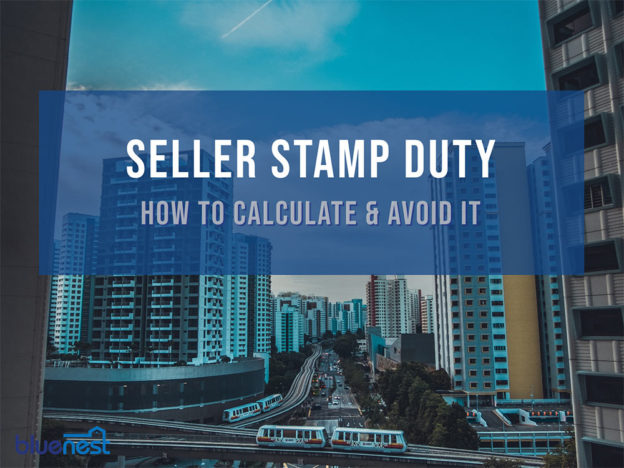Few transactions are as weighty as selling your property.
The financial implications are large, there are many factors outside your control, and it takes a lot of work.
So it’s natural to feel anxious when weeks (perhaps months!) pass without a single offer coming through. You don’t know how to get your condo in front of the right buyers, or why the ones who have seen it didn’t make an offer.
Good news! Most of the time, the obstacles preventing you from selling your condo fast can be eliminated — if you know how.
Today, we’ll interview one of our top agents, Zen Lim. Zen is known in the space for selling multiple properties without a single physical viewing, making him a great person to ask about how to develop a marketing plan.
Zen will share the usual timeline for selling private property, the hindrances to selling, and what you can do to sell your condo fast.
The Usual Timeline for Selling Private Property
Anyone who has sold a property would probably agree that the first 10 to 12 weeks are the most hectic.
From the initial prep work to list your property, viewings, and finally issuing an Option to Purchase, the whole process can feel overwhelming.
Once you’ve found a buyer willing to exercise the Option to Purchase, you can both agree on a completion period. This is anywhere from 12 to 16 weeks, usually depending on whether the buyer requires funds from the sale of another property.
From the time of listing to the sale’s completion, the whole process might take 6-8 months.
Read also: The Step-by-Step Guide to Sell Your Private Property
Of course, the hardest part is finding those prospective buyers. Done poorly, your unit could remain on the market for several months — becoming more and more difficult to sell as time passes. But when done right, you could get an offer in as fast as two days.
So how do you prevent your property listing from growing stale? At what point should you reassess your sale strategy, and how long does it take to find a buyer in a good market?
We’ll get to that next.
What Are the Hindrances to Selling a Condo Fast?
Sizable square footage, a location near an MRT station, or great amenities are all factors that help to sell a condo fast. But these are often factors that we can’t change, and we need to work with what we’ve got.
Instead, we’ll focus on factors within our control – and that we should avoid – to expedite the sale:
1. Setting the Listing Price Too Far Above the Market Value
Real talk: As the seller, you can be the main obstacle to selling your property quickly.
To clarify: we aren’t saying you should settle for less. We all want good value out of our assets. The trouble comes when you expect a higher price than what the market is willing to accept.
Your pricing should be based on a Comparative Market Analysis (CMA) of your unit. You can do a rough estimate yourself by looking at similar units to yours within the same development. If that’s not available, compare with similar developments in your neighbourhood.
This also equips you with the data to negotiate with buyers, should they try to haggle the price down to unreasonable levels.
Most units transact close to the CMA pricing, which is largely determined by the broader market conditions and the supply and demand over time.
Unless your unit has a unique selling point that’s highly coveted, the only time it’s acceptable to go above the average prices is when you’re not in a hurry to sell. If you can afford to wait until market conditions improve and valuations increase, holding out for that extra sum might be worthwhile.
Read also: 5 Lessons We Learned from Record-Breaking Flat Sales
2. Not Preparing an Adequate Marketing Plan
With so many listings on the market, how do you ensure that your listing stands out?
The marketing plan is usually formulated right at the start, after the Comparative Market Analysis report. A good marketing plan should include the unique selling points of your unit along with how to position it relative to the competition.
This is where the skill of property agents becomes evident.
An agent worth their commission would know how to draw out specific points to pique the buyer’s interest, whether from speaking to the buyer’s agent or the buyer(s) themselves. They would have done extensive area research and be able to highlight specific amenities and proximity to key locations like schools or public transport.
They would also know the nearby units for sale, understanding how your unit differs from the others and what advantages it holds.
3. Not Measuring and Adjusting to Market Response
Once your unit is on the market, it isn’t just a passive waiting game. This is the best opportunity to get real feedback on your unit and listing price.
For us, the first two weeks are critical to gauge the market’s response to a unit. This gives us just enough time to get a sense of the demand for the area through checking the number of views a listing gets and the quality of enquiries coming in.
After each viewing, we also collate feedback from the potential buyers. We’ll highlight any action points for the seller to improve the presentation of the unit for viewings. That way, sellers aren’t left in the dark as to what buyers feel about their unit and what they could work on for the next viewing.
In some cases, the lack of quality enquiries may indicate that there isn’t much demand for the area at the time – or that the market as a whole may be putting a hold on purchasing plans.
The former was the case for a unit Zen helped to sell. Because the demand for that development wasn’t strong at the time, Zen recommended that the seller rent out the unit first and re-list the property a year later. In the end, the seller pocketed good rental income and got a higher price than initially expected when he sold the property a year later.
5 Best Practices to Sell a Condo Fast
Beyond what not to do, there are also best practices you could employ if you want a quick sale:
1. Know the Development — Not Just the Unit on Sale
A good real estate agent would conduct a CMA to identify the unique selling points of the development as well as your unit.
As attractive as your unit may be, buyers are also thinking about the development as a whole: whether they see themselves integrating well into that neighbourhood, whether the facilities meet their needs, and perhaps whether a property in that area is a good store of liquidity.
That’s why the highest priority is to have buyers fall in love with the development first, and then the unit itself.
If you manage this task, price usually isn’t too big a concern with the current market – unless there’s nothing noteworthy about the development (then the price will be the selling point).
2. Get to Know the Competition
As with any product priced for sale, your property also needs a competitive analysis. Resources like EdgeProp can help with this: you can check out how much the other developments in the area are priced at, the base $psf, max $psf, and where your unit stands within that range.
After that, sites like PropertyGuru can tell you about other listings in the area and how much competition your unit has.
A good agent would have done his homework on this. He’d know the details of all the other units for sale in the development and be able to cite numbers like floor level, square footage, listing prices, last transacted prices, and what allows your unit to command a higher price (if at all).
This is important because clients would also have done their research before viewing your unit. They know the units in the area – and would likely have arranged viewings for them – so you need to be able to articulate how your unit stands out.
3. Qualify Prospective Buyers
Every serious buyer already has specific traits they’re looking for. If they choose to view your property, they want to see whether your property embodies those characteristics more than the others they shortlisted.
While communicating with the buyer and/or buyer’s agent, ask qualifying questions. These will give you a sense of whether the potential buyers are ready to make a purchase, what expectations they might have, and whether your unit is the right fit for them.
Agents who don’t filter unqualified buyers waste both the buyer’s and seller’s time and give you an inaccurate view of buyer demand.
In most cases, buyers are under time pressure to purchase a unit, so those who are further along in their viewing process would be clearer about their preferences. They’d also know that there’s no such thing as a perfect unit and that they may need to make some compromises.
4. Tailor Your Presentation of the Property for the Buyers
We asked Zen for any examples of how he made a seemingly difficult sale happen faster than expected.
There was a 2nd floor unit that had been converted from a 3-bedder to a 2-bedder. The owner had previously attempted to sell the unit, with no success.
A year later, the owner decided to approach Bluenest. We connected him with Zen, whose strategy was to focus on qualifying buyers and find out what they were looking for in a property.
Armed with that knowledge, he angled the presentation of the unit to fit the buyer’s needs.
In this case, the buyer’s main interest was the ability to sell the property at a later date and for a profit. So Zen focused on the development’s prime location, the enbloc potential due to its age, the recent renovations, and the excellent condition of the unit.
With Zen speaking to their specific concerns, the buyer felt they stood to gain a decent profit from the condo.
5. Reach Out to the Network
Good agents make it a point to maintain a healthy network of potential buyers, sellers, and agents. While managing their listings, they would have connected with potential buyers for each property sold and be keenly aware of their purchase criteria.
This allows them to have a pool of ready buyers for specific neighbourhoods or property types.
When you work with a well-connected agent, you greatly increase your chances of a faster sale.



